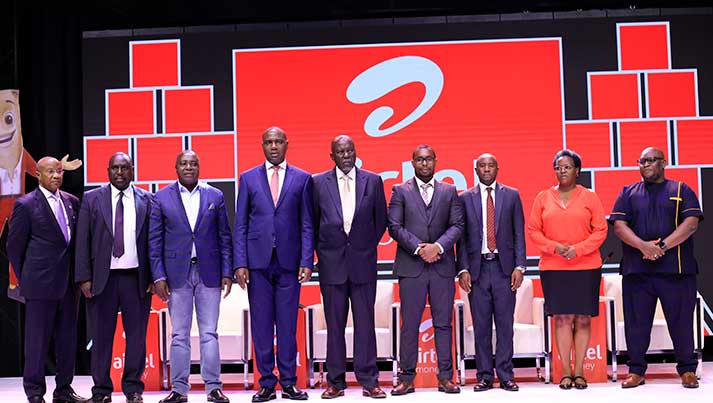Business
Gov’t asks Telecoms to cut MoMo charges to spur financial inclusion

Gov’t asks Telecoms to cut MoMo charges to spur financial inclusion
The government has asked mobile telecommunication service providers to bring down the cost of sending and receiving money using telephones (Momo) as a way to spur access to affordable digital financial inclusion.
The ministry of finance, planning and economic development is proposing that 0.5 % tax that is charged on mobile money transactions be reduced.
In 2018 the Finance Ministry revised the mobile money taxes, from 1% to 0.5%, only on withdrawals and not sending, receiving and depositing, however the finance minister in charge of general duties Henry Musasizi says this levy is still high.
This tax always applies every time a person uses their mobile money account whether they are paying their child’s school fees, paying utility bills among others.
Musasizi was addressing an engagement organized by Airtel Mobile commerce for Fin-tech stakeholders on how to achieve a progressive regulatory environment that supports affordable digital financial inclusion in Uganda.
“What we are saying is that on every mobile money transaction , there is a transaction cost of 10% meaning if you are withdrawing 10,000, there is 1000 on withdrawal out of which only 50 shillings is taxed , meaning 950 shillings is a charge which goes to the service provider, that is why we are asking them to reconsider that, in order to promote financial inclusion, in order to facilitate our people in the country side access financial services,” Musasizi .
Japhet Aritho, the Managing Director at Airtel Mobile Commerce Uganda says that they are still digesting the proposal to assess its impact on transactions.
“if you look at 0.5% tax at a lower transaction levels where you are looking at those people who are financially excluded, the figure is not significant, that value only becomes significant on high amounts and that is why now when you look at the ecosystem as the value increases, it discourages people. You imagine paying UGX37,500 to do a transfer, I rather walk in and out or meet you over coffee and pay you the money cash, so these are some of the things we are trying to highlight during the forum that when you look at the 0.5% from the high values it becomes discouraging but for the masses and financial inclusion I do not think it is inhibiting, it’s not very punitive,” Aritho said.
However, Minister Musasizi appreciated the growth in the Fin tech sector and applauded the players for the good work done.
He said that Airtel Money, with other players, were very instrumental in maintaining the economy during the difficult covid19 lockdown.
Applauding Airtel for supporting the government in keeping Uganda working during that difficult time, Musasizi said that the growth of mobile money services has been phenomenal since it was introduced 10 years ago.
“It has deepened financial inclusion, lowered the transaction costs, improved rural access to financial services, and integrating greater customer convenience,” Musasizi.
Mobile financial services have grown tremendously and currently, the country has about 40.7 million digital wallets shared between mobile network operators and non-mobile network operators, transacting an average of 6 trillion shillings in person-to-person.
Aritho expressed joy on the fact that Airtel was able to host the engagement as part of its confidence building in this important Fin-Tech sector. He said that the discussions were thought provoking and setting the stage for Innovations, inclusion, and affordability that Airtel Mobile Commerce Uganda is known for.
“A dialogue like this helps us to identify the gaps that need to be addressed in terms of regulation, improved services, new industry developments, among others. We will explore partnerships that create opportunities for shared value from our different expertise that will grow Digital and financial inclusion in this country. I believe the National Payments System is on the right trajectory of growth and depth,” said Aritho.
Meanwhile, Kennedy Kipkemboi the Mobile Money Regulatory Head at GSMA in Kenya, noted that as more services were digitalized especially during the covid19 pandemic, cases of fraud in the industry became more prominent as online thieves became more innovative.
Kipkemboi says after service providers have come-up with mitigating measures to detect fraud cases and protect the customer, there is a need for a multiple approach from Fin-tech, agents, banks, government, and all other sector players to make the ecosystem safe for the customer.
He says with this effort of working together issues of financial terrorism and money laundering can be easily addressed.
Comments


















